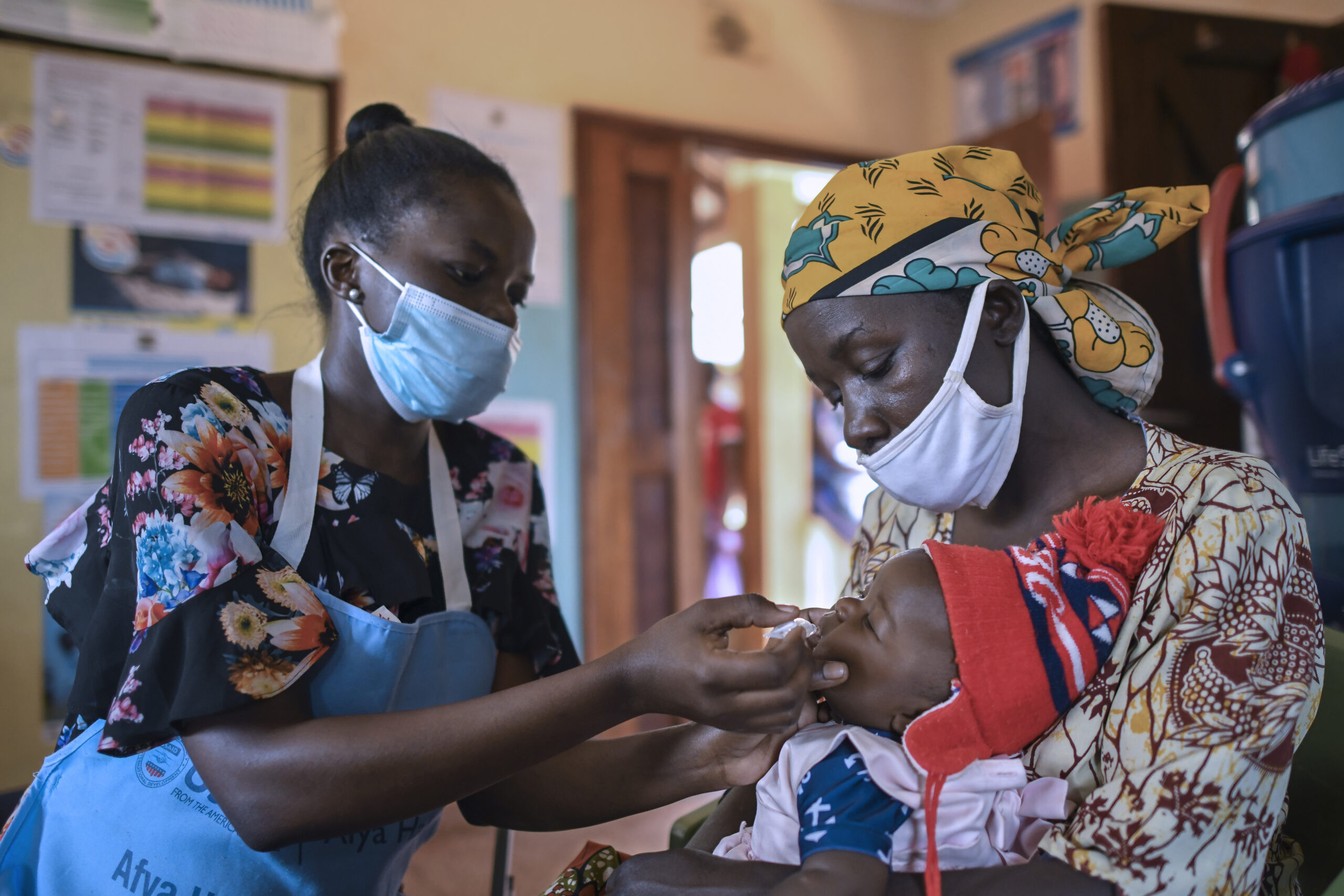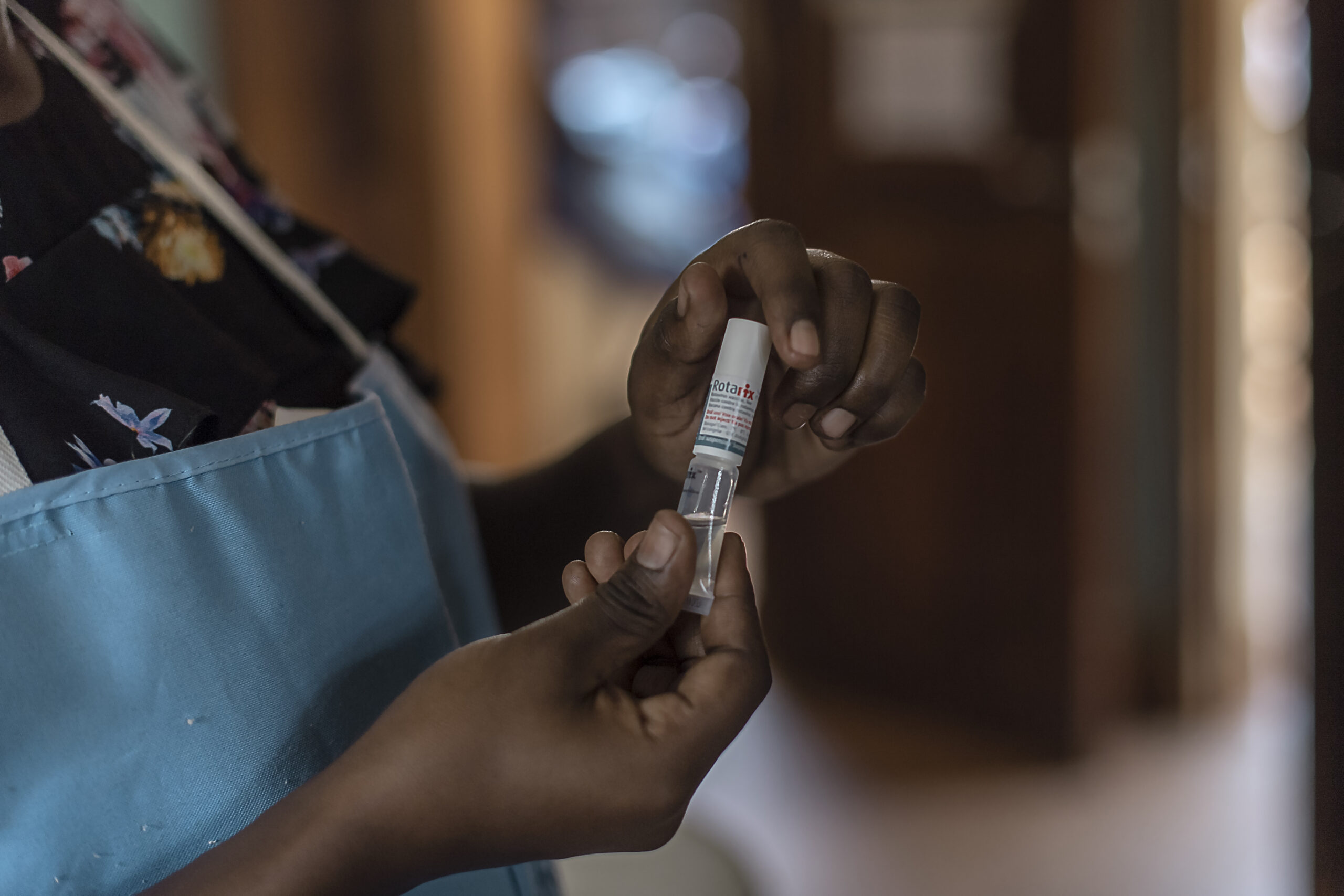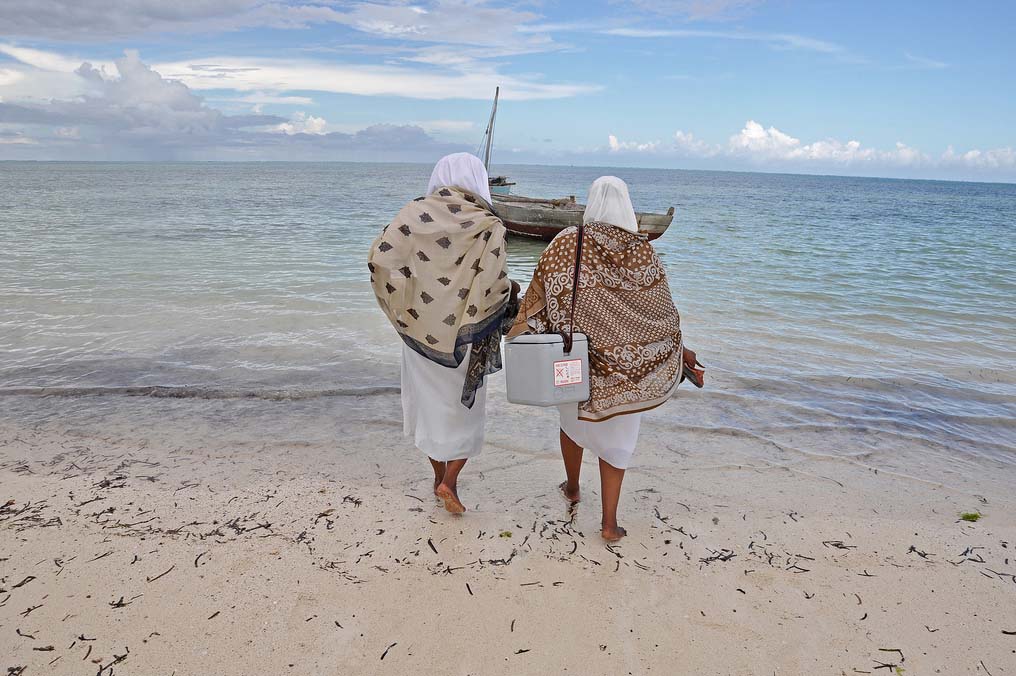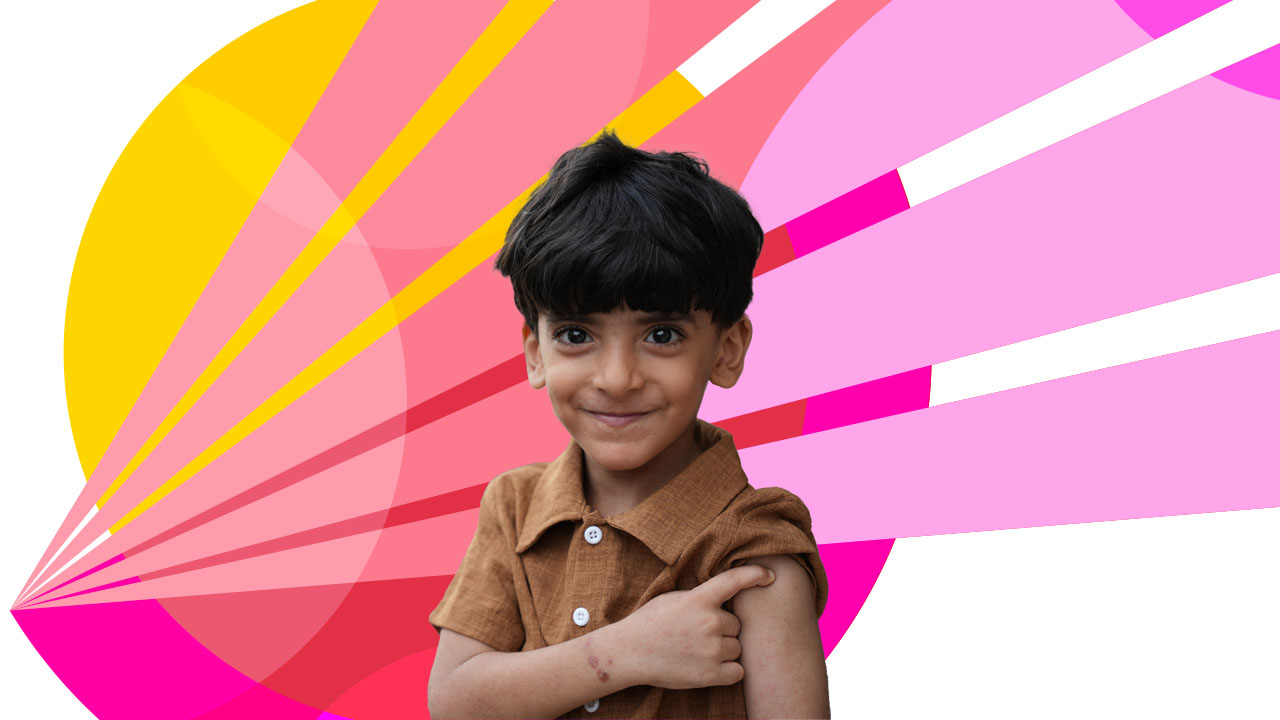
Defending against disease

Annet Onyamasi (left) administers an oral rotavirus vaccine at Khwisero Health Clinic in Kakamega County, Kenya. Countries that introduced the rotavirus vaccine have seen a 59% median reduction in rotavirus hospitalizations among children under 5. Credit: PATH/Anthony Karumba.
The United States is having a measles outbreak and the US CDC advises that people vaccinated before 1968 check their immunity because the vaccine used then has since been improved. Sure enough, I learned from a blood test this week that my immunity to measles turned out to be low and I made an appointment for a booster shot next week.
Measles is highly contagious because it spreads through the air when an infected person coughs or sneezes. An individual can become sick just by being in a room where a person with measles has been—even up to two hours after that person has left. It is especially dangerous to babies and young children.
Not only do I not want to become sick with measles, I want to protect others—like my neighbor’s newborn (who is too young to be immunized) or my friend with cancer (whose immune system is quite weak right now). Community immunity—when the number of vaccinated individuals makes it impossible for the disease to spread—is how the US once eliminated measles.
I switched browser tabs from booking my vaccine appointment to learn that the US administration plans to stop supporting vaccination for low-income countries by ending its funding to Gavi, the Vaccine Alliance.
Beyond the startling juxtaposition between my easy access to vaccines and the access of others being at risk, I worry about letting down our own defenses.
Contributing to Gavi is an investment in protecting the health of the US. We all know that viruses and bacteria can easily land here—when someone who is infected is on the same plane as business travelers or the crew of the cargo ship bringing consumer goods. When we prevent the spread of disease, we protect ourselves and our economy.
In the same way we allocate money to our military defense, we can and should ensure that we defend against diseases that keep children out of school, parents out of work, and soldiers from their posts.
And, contributing to Gavi is extremely cost effective, since the costs of our defense against diseases are shared with other nations, who provide 80% of Gavi’s budget. Since Gavi’s inception in 2000, the US has helped immunize more than 1.1 billion children around the world, averting just under 19 million deaths.
Moreover, every dollar invested in Gavi generates 54 dollars in wider economic benefits, making it among the best investments in development.
As the US administration has committed to making America safer, stronger, and more prosperous, Gavi is an easy win and one I hope leaders will reconsider.


